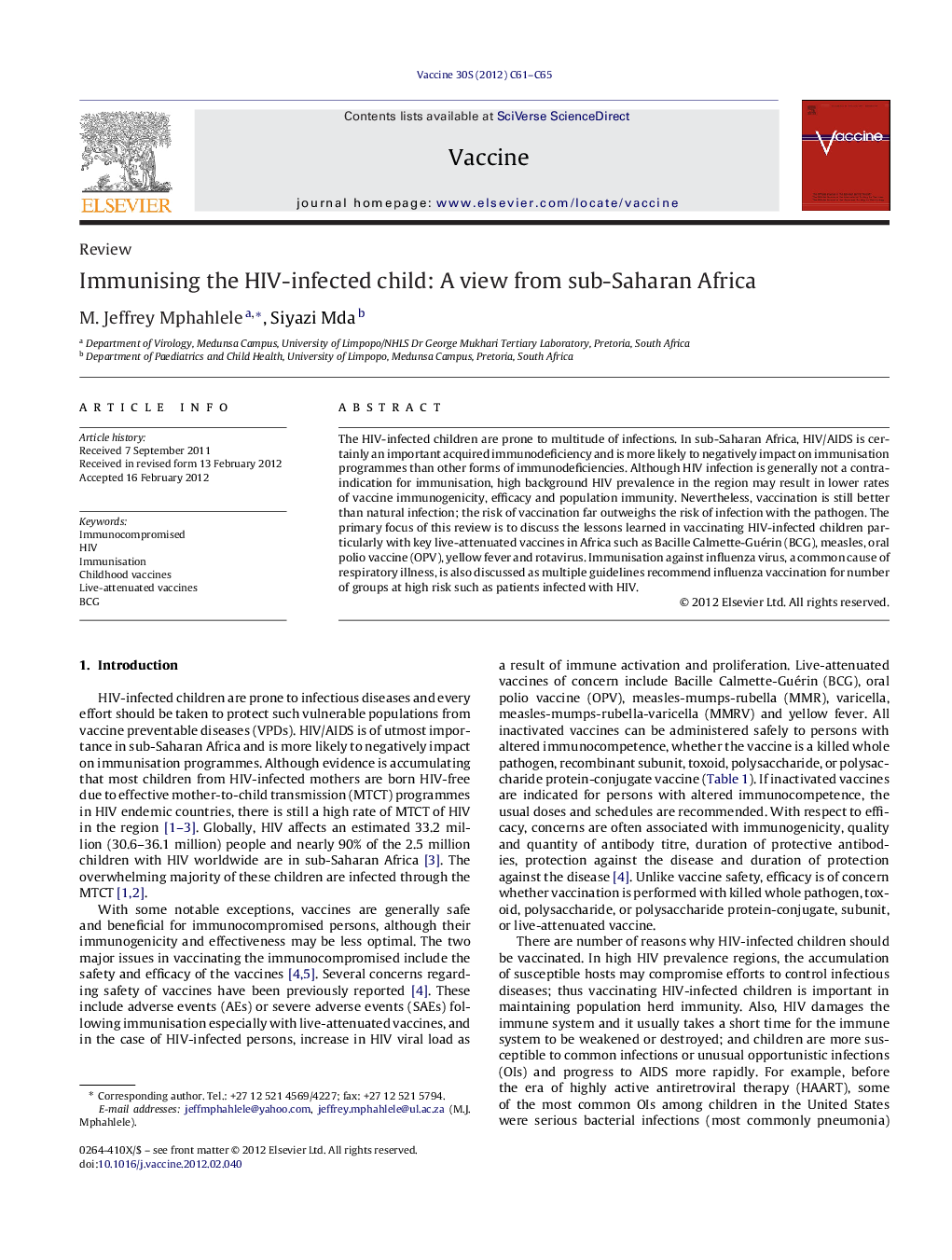| Article ID | Journal | Published Year | Pages | File Type |
|---|---|---|---|---|
| 2402842 | Vaccine | 2012 | 5 Pages |
The HIV-infected children are prone to multitude of infections. In sub-Saharan Africa, HIV/AIDS is certainly an important acquired immunodeficiency and is more likely to negatively impact on immunisation programmes than other forms of immunodeficiencies. Although HIV infection is generally not a contra-indication for immunisation, high background HIV prevalence in the region may result in lower rates of vaccine immunogenicity, efficacy and population immunity. Nevertheless, vaccination is still better than natural infection; the risk of vaccination far outweighs the risk of infection with the pathogen. The primary focus of this review is to discuss the lessons learned in vaccinating HIV-infected children particularly with key live-attenuated vaccines in Africa such as Bacille Calmette-Guérin (BCG), measles, oral polio vaccine (OPV), yellow fever and rotavirus. Immunisation against influenza virus, a common cause of respiratory illness, is also discussed as multiple guidelines recommend influenza vaccination for number of groups at high risk such as patients infected with HIV.
► HIV/AIDS is an important acquired immunodeficiency in Africa. ► HIV infection is generally not a contra-indication for immunisation. ► Vaccination is often suboptimal in persons with altered immunocompetence. ► Live-attenuated vaccines have potential safety concerns in HIV-infected persons.
